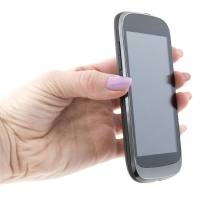Mobile Testing: The First Step—or Two

Everyone wants mobile apps and devices. It’s the hottest software field. On a few projects, fortunate testers verify and validate mobile software throughout the lifecycle. But on many mobile projects, testing is not practiced well—or sometimes not done at all.
Many testers from the desktop world are moving into mobile, and there is much they can take from traditional testing into the mobile space. Here are some ideas about the discipline to get you thinking about testing mobile devices.
It is this last point—thinking—that testers need to practice the most in any system. To be a good mobile tester, you need knowledge to drive thinking, practice to build skills, and experience. But where should you start when thinking about mobile testing?
Begin by creating a test strategy. Clarify what you will be testing and to what degree: hardware, software, hunting for bugs, verification-checking requirements, validating the system, assessing nonfunctional qualities, needing to provide some other information stakeholders need, or a combination of these.
For example, how does your app impact battery life? Can the app work without a good connection due to weak or intermittent signals? Does the test strategy need to address Wi-Fi, cellular, Bluetooth, or other communication features of the hardware? And finally, how does (or should) the mobile device’s hardware impact your app testing, such as the sensors, GPS, camera, speakers, or microphone?
Think of these things before you start your test planning, design, implementation, and execution. These considerations work with any of the three types of apps: native (runs with no external connection needed), web apps (needs a web connection to run), and hybrid (mix of both).
There are many steps in becoming a mobile tester. Strategy is what gets a mobile tester started. Critical thinking is what makes any tester better at his craft. I am still learning and growing my mobile testing skills and my critical thinking capabilities. You too should keep practicing and learning to be a better mobile software tester.
Can you think of other first steps you need to make in mobile testing? It is healthy to have different ideas because testing is a professional thinking practice. Please share your thoughts in the comments below.
Jon Hagar is presenting the session Top Ten Attacks to Break Mobile Apps at STARWEST, in Anaheim, CA, October 12–17, 2014.

